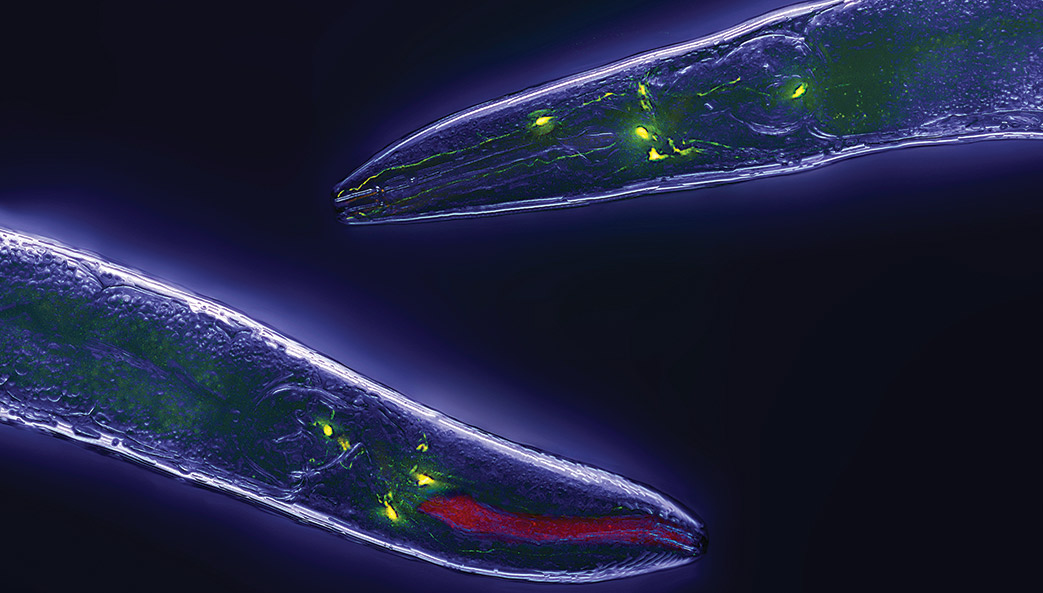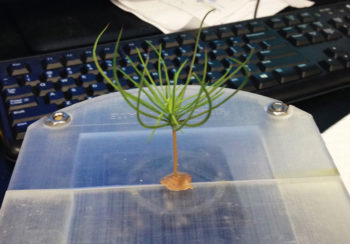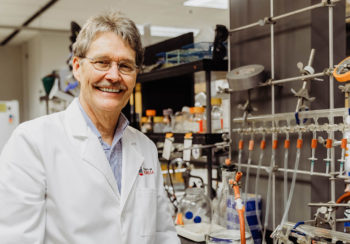 May 10, 2016
May 10, 2016
[dropcap text_color=”white” background_color=”#bf1f24″]A[/dropcap]rt Edison joined the University of Georgia last year as one of its newest Georgia Research Alliance Eminent Scholars. A faculty member in the department of biochemistry and molecular biology, the department of genetics, the Institute of Bioinformatics and the Complex Carbohydrate Research Center, Edison devotes much of his time to the study of metabolomics, an emerging field that offers scientists a broader understanding of many important life processes. Here, he discusses his work and the future of metabolomics research at UGA.
A great deal of your research focuses on something called metabolomics. Can you help those who aren’t familiar with the term better understand what that means?
Basically, metabolomics is the study small molecules called metabolites, and the metabolome refers to all the metabolites in an animals, plants or microbes. The ultimate goal of metabolomics is to measure and quantify all of the metabolites in a living system. We’re a long way from achieving that goal, but it’s important, because metabolites are involved in a variety of fundamental biological functions in humans, animals and even plants. The food that we eat is fuel for metabolism, and most of the signaling that happens in our cells is through metabolic processes. Metabolites are involved in just about everything that happens in the body.
So if they are found throughout our bodies, what does that mean for human health?
The metabolites in the human body are incredibly sensitive to a variety of influences, and they change as we interact with our environment, as we age, when we contract a disease or when we take medicines. All these things are reflected in the metabolome, so that creates a nice opportunity. If we could measure and quantify the metabolome, researchers could, for example, compare a group of patients who have cancer with a group of people who do not and see how their metabolomes differ. This kind of approach could give us some important clues about the causes of diseases, but it could also lead to the development of new diagnostics and therapeutics.
Have you tried this kind of approach in a real patient population?
Yes, I’m working on a study with collaborators that focuses on children with Duchenne muscular dystrophy. One of the big problems with research on this disease is that there are no biological markers accepted by the Food and Drug Administration that we can use to determine if a new therapy works. The only accepted metric that we have now is a walking test where they see how far a child can walk in six minutes. So if someone develops a new drug and it doesn’t make them walk a greater distance, it’s usually deemed ineffective. That’s an incredibly crude way of assessing potential therapies, so what we’re doing is looking at metabolic compounds excreted in the urine of these patients to see if we can identify a solid biomarker associated with the disease. If that works, we may be able to develop a new test to evaluate the efficacy of drugs.
Your laboratory also does a lot of work with worms. How do worm studies fit into the big picture of metabolomics?
The great biologist E.O. Wilson estimates that four out of every five animals on Earth is a nematode, a worm. By his estimates, they are the most abundant animal on the planet in terms of sheer numbers, but we know very little about them. In my lab, we study a small soil nematode called Caenorhabditis elegans, about one millimeter in length, which you might find outside your home in a compost pile. What we would really like to accomplish with our research on C. elegans is to map the metabolome to the genome and understand the relationships between metabolites and genes. Genomic researchers have given us a wealth of information about how genes affect organisms, but we know far less about the metabolites, so our research on worms will hopefully help us place some of those missing pieces of the biological puzzle. Also, what we learn in worms will almost certainly help us understand the role of metabolites in humans and other animals.
So despite the potential applications in human health, you’re still a champion of basic science.
Absolutely, I want to see horrible diseases eradicated just as much as anybody, and I’d love it if my work could contribute in some way to that goal. But the lessons of science demonstrate that we don’t always know where those discoveries will come from. A lot of the research into human health abandons basic science in favor of something more applied, but much of what we know today about disease or medicine stems from basic science. My new colleagues here at UGA have been fabulous, and I think that together we can make some real progress in our fundamental understanding of all life, including humans.






